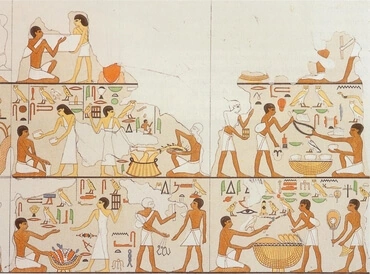1
Esto pues es lo que los hijos de Israel tomaron por heredad en la tierra de Canaán, lo cual les repartieron Eleazar sacerdote, y Josué hijo de Nun, y los principales de los padres de las tribus de los hijos de Israel.
2
Por suerte se les dio su heredad, como el SEÑOR lo había mandado por Moisés, que diese a las nueve tribus y a la media tribu.
3
Porque a las dos tribus, y a la media tribu, les había Moisés dado heredad del otro lado del Jordán; mas a los levitas no dio heredad entre ellos.
4
Porque los hijos de José fueron dos tribus, Manasés y Efraín; y no dieron parte a los levitas en la tierra, sino ciudades en que morasen, con sus ejidos para sus ganados y rebaños.
5
De la manera que el SEÑOR lo había mandado a Moisés, así lo hicieron los hijos de Israel en el repartimiento de la tierra.
6
Y los hijos de Judá vinieron a Josué en Gilgal; y Caleb, hijo de Jefone cenezeo, le dijo: Tú sabes lo que el SEÑOR dijo a Moisés, varón de Dios, en Cades-barnea, tocante a mí y a ti.
7
Yo era de edad de cuarenta años, cuando Moisés siervo del SEÑOR me envió de Cades-barnea a reconocer la tierra; y yo le referí el negocio como lo tenía en mi corazón;
8
mas mis hermanos, los que habían subido conmigo, menguaron el corazón del pueblo; empero yo cumplí siguiendo al SEÑOR mi Dios.
9
Entonces Moisés juró, diciendo: Si la tierra que holló tu pie no fuere para ti, y para tus hijos en herencia perpetua; por cuanto cumpliste siguiendo al SEÑOR mi Dios.
10
Y ahora El SEÑOR me ha hecho vivir, como él dijo, estos cuarenta y cinco años, desde el tiempo que el SEÑOR habló estas palabras a Moisés, que Israel ha andado por el desierto; y ahora, he aquí soy hoy de edad de ochenta y cinco años;
11
y aun hoy estoy tan fuerte como el día que Moisés me envió; cual era entonces mi fuerza, tal es ahora, para la guerra, y para salir y para entrar.
12
Dame, pues, ahora este monte, del cual habló el SEÑOR aquel día; porque tú oíste en aquel día que los anaceos están allí, y grandes y fuertes ciudades. Por ventura el SEÑOR será conmigo, y los echaré como el SEÑOR ha dicho.
13
Josué entonces le bendijo, y dio a Caleb hijo de Jefone a Hebrón por heredad.
14
Por tanto Hebrón fue de Caleb, hijo de Jefone cenezeo, por heredad hasta hoy; porque cumplió siguiendo al SEÑOR Dios de Israel.
15
Mas Hebrón fue antes llamada Quiriat-arba; porque Arba fue un hombre grande entre los anaceos. Y la tierra tuvo reposo de las guerras.







